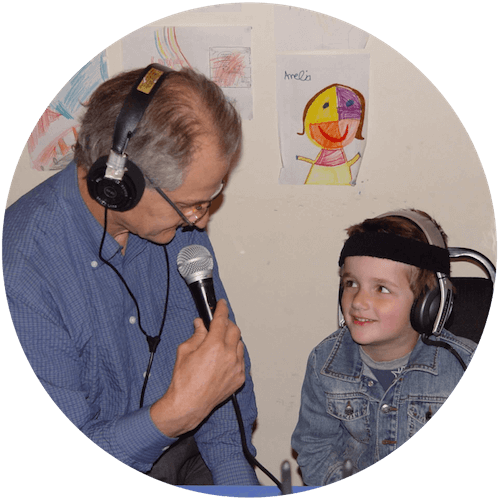Learning Difficulties in Children

What is a learning difficulty?
A sensory based learning difficulty is where one or more of your senses are either too sensitive or are not sensitive enough. This causes you to either miss information or become overloaded. Therefore sensory based learning difficulty makes it difficult for you to access your intelligence. Many people suffer from a learning difficulty because of poor auditory processing and struggle to read, write and communicate fluidly.
A learning difficulty involves a difficulty understanding or using spoken or written language. It may involve a difficulty with reading, writing or spelling, maths, listening, thinking, communicating or speaking. 10-16 % of students have sufficient learning difficulties to justify special support.1 However, the incidence of children with a learning difficulty appears to be rising in Australia and elsewhere – some 20% of Australian 5-10 year olds have auditory processing difficulties,2 while 66% of Australian employers consider high school leavers are not literate.3
As infants listen to the language(s) they hear in the first year of life, their brain forms connections for the phonemes they hear consistently, particularly those of their mother tongue. When the patterns that make up words are repeatedly heard by infants, their brains represents them as an assembly of brain cells (neurons) that fire together closely in time. You may have heard the phrase: “neurons that fire together wire together”. This means that the more often we experience a pattern, the more likely it is that this pattern will be wired into our brain for rapid recognition and retrieval. Sounds that are not heard are not wired into the brain. This explains why some children have reading difficulties later in life.
Before children can easily learn to read, they must first be able fluently speak the same language they are learning to read. When a child is learning to read, they must become aware of the sounds that we associate with the letters that make up words. This is known as phonemic awareness. Phonemes are the sounds we use to make words. For example, the word cat has three phonemes – ‘c’, ‘a’ and ‘t’. Changing one of the phonemes from ‘a’ to ‘u’ changes the meaning of the word and produces cut. Processing speed has a significant impact on learning because you need to process faster than 40 milliseconds to accurately discriminate even simple words like cat from cut. We see many children who process slower than 400 milliseconds4.
Early middle ear issues
The most common causes of the auditory processing deficits we see in our clients are:
- A difficult birth
- Early ear infections
- A food intolerance
- Head trauma
Children with poor hearing, a history of early middle ear issues or an auditory processing difficulty, struggle to represent phonemes correctly because their brain does not recognise the word sounds accurately. These errors usually result from an inability to process or discriminate sounds quickly enough. Such children are at risk of spoken and written language delay and experiencing a learning difficulty. If one does not hear clearly, one cannot expect to process auditory information correctly.
While most children with a learning difficulty have normal hearing sensitivity, the way they hear is inadequate. Their hearing sensitivity is within normal limits may be distorted or scrambled or they may be hearing too acutely or too little at particular frequencies.
Children’s hearing is normally tested with the standard Audiogram at only four points on the hearing scale and said to be suitable for language if these tones are heard at 20 – 40 decibels. This was based on the range needed for an adult to hear a telephone conversation. It has little to do with the hearing level needed for a child to collect and discriminate sounds in those early years of life when language is being formed. Far more sensitivity is needed for this difficult task. A listening assessment measures both your hearing and listening across many more frequencies. We find that most children with learning difficulties:
- Process sound with inappropriate sensitivity.
- Process too slowly.
- Can only manage to understand short blocks of words,
- Quickly overload and lose attention and can be labelled attention deficit.
- Have weak short-term memory
- Having late/poor language skills, in receptive and expressive areas.
- Have weak phonics, decoding new words, reading, spelling and comprehension.
- Are emotionally behind their peers.


How can listening therapy help?
Auditory processing can unlock or undermine the capacity to learn. We can improve auditory processing in children with learning difficulties by improving their ability to identify the different sounds. This improves attention, literacy, numeracy and communication.
After completing a program of Listening therapy, we have found that auditory processing speed typically doubles. The improvement in speech and the ability to decode, as seen in spelling results are wonderful to observe. Auditory programs for struggling students also efficiently build the basic skills (memory, attention, processing and sequencing) that form the foundation upon which learning depends.
Diet & Lifestyle
Diet can play a major role in both the development of learning difficulties and in their management. The brain is metabolically active and subtle changes in metabolism, caused by an unsuitable diet can significantly undermine cognitive function. An increasing number of studies suggest that learning, attention and hyperactivity can be significantly helped with improved nutrition.
- Implement a balanced, fresh, unprocessed diet
- If there is chronic congestion, identify causes and rectify
- Investigate hearing and address any conductive hearing losses
- Comprehensive assessment to identify markers for all the causes of the Learning difficulty
- Australian Department of Education, Employment and Workplace relations, Schooling Issues Digest – Students with Learning Difficulties in Relation to Literacy and Numeracy.
- ACER 2004
3. Croucher 2001
4. Sound Therapy, talk to the Mind of the Child Conference. Aug 22,1999 by Dr Mary Lou Shiel, M.B.B.S., D.C.H. (London).

